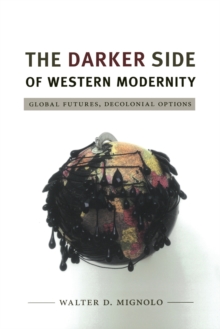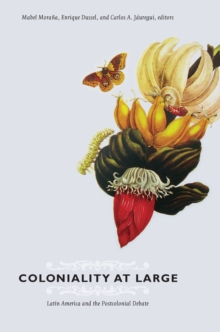
Labors Appropriate to Their Sex : Gender, Labor, and Politics in Urban Chile, 1900-1930 Paperback / softback
by Elizabeth Quay Hutchison
Part of the Latin America Otherwise series
Paperback / softback
Description
In Labors Appropriate to Their Sex Elizabeth Quay Hutchison addresses the plight of working women in early twentieth-century Chile, when the growth of urban manufacturing was transforming the contours of women's wage work and stimulating significant public debate, new legislation, educational reform, and social movements directed at women workers.
Challenging earlier interpretations of women's economic role in Chile's industrial growth, which took at face value census figures showing a dramatic decline in women's industrial work after 1907, Hutchison shows how the spread of industrial sweatshops and changing definitions of employment in the census combined to make female labor disappear from census records at the same time that it was in fact burgeoning in urban areas.In addition to population and industrial censuses, Hutchison culls published and archival sources to illuminate such misconceptions and to reveal how women's paid labor became a locus of anxiety for a society confronting social problems-both real and imagined-that were linked to industrialization and modernization.
The limited options of working women were viewed by politicians, elite women, industrialists, and labor organizers as indicative of a society in crisis, she claims, yet their struggles were also viewed as the potential springboard for reform.
Labors Appropriate to Their Sex thus demonstrates how changing norms concerning gender and work were central factors in conditioning the behavior of both male and female workers, relations between capital and labor, and political change and reform in Chile. This study will be rewarding for those whose interests lie in labor, gender, or Latin American studies; as well as for those concerned with the histories of early feminism, working-class women, and sexual discrimination in Latin America.
Information
-
Available to Order - This title is available to order, with delivery expected within 2 weeks
- Format:Paperback / softback
- Pages:360 pages, 20 photographs, 22 tables, 2 maps
- Publisher:Duke University Press
- Publication Date:15/11/2001
- Category:
- ISBN:9780822327424
Other Formats
- Hardback from £92.49
Information
-
Available to Order - This title is available to order, with delivery expected within 2 weeks
- Format:Paperback / softback
- Pages:360 pages, 20 photographs, 22 tables, 2 maps
- Publisher:Duke University Press
- Publication Date:15/11/2001
- Category:
- ISBN:9780822327424










